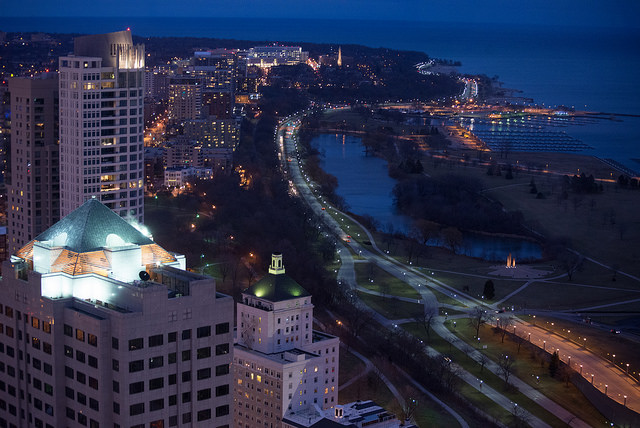
Photo Credit: Jim Bauer, CC BY-ND 2.0
Folks in the Midwest sometimes say that their day is coming again because of climate change. They believe that since they are not vulnerable to sea level rises and have huge supplies of fresh water – including the world’s largest supply in the form of the Great Lakes – they will be back in favor in the future.
Ample water supplies are a key asset of the Midwest vs. many other areas, but what are they doing with it?
The answer is: not much.
The Milwaukee area has put a focus on economic development around water-related industries. This is one I think is a potential winner because it taps into the city’s process control expertise.
But ultimately, where are the innovations in water technology likely to come from, places with lots of water or places with not very much water? My bet is on the latter. I would expect places like Israel and California to lead on water tech innovation, for reason of necessity and also because of their existing proven innovation capabilities.
The main way the Midwest could leverage its water resources is by using them. That is, the availability of large – functionally unlimited in many places – water supplies would suggest focusing on water intensive industries, and setting regulations that enable higher water consumption for things like lawn watering and irrigation than can be done elsewhere. And also seeking out new and creative ways to use water.
But what I find interesting is that the intelligentsia of the Midwest likes to focus on water conservation. In these they are importing coastal attitudes, if not yet all of the regulatory infrastructure that comes with them.
Clearly the Midwest should avoid over-consuming water, in that it doesn’t want to impair its long term supplies. But within that constraint, when you’ve got a strategic asset like large water supplies, the goal should be, in theory, figuring out how to get the most out of it. Keep in mind that water, unlike oil, isn’t destroyed after use.
I don’t hear anyone thinking about how to leverage water in this way. Again, they have instead imbibed the ambient conservationist rhetoric. This is an example of how the Midwest is a passive importer of ideas from elsewhere and rarely comes up with ideas of its own. They are unable to think about their water resources relative to themselves.
Now it may be that boosting water consumption would be a bad idea for various reasons. But I don’t even see people evaluating the idea, or thinking creatively how these places should leverage their water as an asset. It all seems to be about banking water for the future in the hopes that they’ll be the last man standing. I wouldn’t hold my breath for that.
from Aaron M. Renn
http://www.urbanophile.com/2017/08/25/water-and-midwest-strategic-thinking/
No comments:
Post a Comment